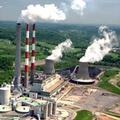 來自全世界各地的國家領袖,24日聚集在美國紐約的聯合國總部,為氣候變遷舉辦有史以來最盛大的高峰會議。全球溫度上升,造成了海平面的上升、水荒、極端氣候、生物滅絕及熱帶疾病傳染,此次會晤主要即為喚起對此議題的關注。
來自全世界各地的國家領袖,24日聚集在美國紐約的聯合國總部,為氣候變遷舉辦有史以來最盛大的高峰會議。全球溫度上升,造成了海平面的上升、水荒、極端氣候、生物滅絕及熱帶疾病傳染,此次會晤主要即為喚起對此議題的關注。
聯合國秘書長潘基文招集超過80位國家及政府首長參與會議,在限制人為因素所產生的溫室氣體上,增加各國政府的意願,這些人為因素包括燃燒煤、石油、及天然氣。潘基文指出:「我們無法一直走過去的路,我們也無法繼續過去的商業行為。這是全球決定付出行動的時刻。」
國家代表將親自參與12月在印尼峇里島舉辦的例行聯合國氣候會議。在那裡,各國政府將協商於2012年屆滿的《京都議定書》條款之後,該如何執行全球氣候協議。
21日的會議上,工業化與開發中國家達成前所未有的協議,同意盡快停止使用對臭氧層及引起全球暖化的化學冷卻劑。
儘管這是個突破,但許多國家仍然擔心溫室氣體排放減量的花費,以及強大國家的影響。在歐盟的許多國家擔心他們的犧牲,不足以抵抗中國、印度、巴西、墨西哥及南非等國,這些國家的溫室氣體排放不在京都議訂書的限制之內。
全球氣候變遷的克萊森(Elieen Claussen)和迪林格(Elliot Diringer)在《哈佛國際評論》春季刊裡表示:「現在最需要的就是美國的領導地位,因為沒有國家比美國對氣候變遷的影響更大,也沒有國家有能力去承擔全球的責任。」
National leaders from across the world are gathering at United Nations Headquarters in New York today for the largest ever high level meeting on climate change. The talks are expected to produce a strong call for action to address the planet's rising temperature that threatens higher sea levels, water scarcity, extreme weather patterns, a wave of extinctions, and the spread of tropical diseases.
UN Secretary-General Ban Ki-moon convened the brainstorming session of more than 80 heads of state and government with a view to increasing the political will to limit the emission of greenhouse gases produced by human activities such as the burning of coal, oil and gas.
"We cannot go on this way for long," says Ban. "We cannot continue with business as usual. The time has come for decisive action on a global scale."
Leaders will have their eyes on the annual UN climate conference this December in Bali, Indonesia. There, governments will begin to negotiate a global climate treaty covering the period after the current framework - the Kyoto Protocol - expires in 2012.
In an unprecedented agreement Friday, industrialized and developing countries decided to accelerate the phaseout of coolant chemicals that are harmful to the ozone layer and also are a cause of global climate warming.
But despite this breakthrough, many countries fear the cost of reducing emissions and the influence of powerful lobby groups. Many worry that some countries such as those in the European Union are making sacrifices while other high-emitting nations such as China and India, Brazil, Mexico, and South Africa are getting away without limiting their greenhouse gas emissions.
"What is needed above all right now is U.S. leadership, for no country bears greater responsibility for climate change, nor has greater capacity to catalyze a global response," say Eileen Claussen and Elliot Diringer of the Pew Center on Global Climate Change, writing in the spring issue of the "Harvard International Review."
全文及圖片詳見 ENS






